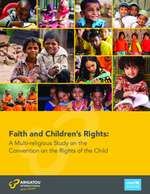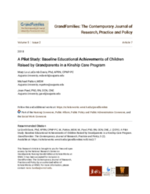Educational Background, Educational Expectations and Organized Activity Participation Among Adolescents Aging Out of Care in Brazil
This chapter from the book Education in Out-of-Home Care aims to (1) provide an overview of educational background and educational expectations of adolescents aging out of care in Brazil; (2) examine associations between educational background and extracurricular activity and placement characteristics; and (3) discuss the specificities of education in care for adolescents in Brazil as well as its similarities with other countries.



